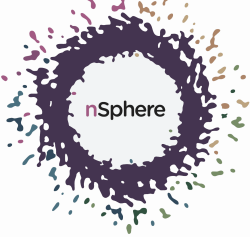
The Future of FinTech: Trends That Will Shape the Industry in 2025 and Beyond
In the past few years, the financial technology (FinTech) industry has been evolving at such a rapid pace that the way people manage their finances has been completely revolutionized. As digital banking and blockchain and artificial intelligence and embedded finance continue to disrupt traditional financial services, they are becoming more accessible, efficient and secure.
Some key FinTech trends will shape the future up to 2025 and beyond. This article discusses these trends and their implications on the global financial landscape.
The Rise of Decentralized Finance (DeFi)
Expanding Beyond Cryptocurrencies
One of the most disruptive innovations in the financial service industry has been Decentralized Finance (DeFi). DeFi platforms are built on blockchain technology that removes the need for intermediaries like banks or brokers, which means users can lend, borrow, trade and earn interest without the help of traditional financial institutions.
DeFi started on cryptocurrency markets but is now moving into mainstream finance. DeFi protocols are being developed to facilitate decentralized lending, insurance and asset management. DeFi can grow into a legitimate alternative to traditional banking, as regulatory frameworks mature.
Institutional Adoption of DeFi
DeFi becomes an interesting solution to reduce costs and increase efficiency for large financial institutions. Blockchain based smart contracts are being integrated by banks and asset managers to automate transaction and settlements. The gap between traditional finance and decentralized systems is expected to close, in turn accelerating this trend.
The Acceleration of Embedded Finance
Banking-as-a-Service (BaaS)
Financial services are embedded into non-financial platforms and that is what is known as embedded finance. From e-commerce to healthcare, payment processing, lending and insurance are being embedded into companies’ apps and websites.
BaaS providers allow businesses to provide financial products without having to build out banking infrastructure from scratch. Companies can easily integrate instant payments, credit lines and investment options by using APIs.
The Growth of Buy Now, Pay Later (BNPL)
The Buy Now, Pay Later (BNPL) model has become a mainstream financing model for consumers to make purchases and pay in installments without requiring credit checks. BNPL services are continuing to grow in popularity beyond retail into travel, healthcare, education, among others.
BNPL is closely being watched by regulators to prevent consumer abuse and responsible lending. Long term sustainability of this model will require striking a balance between innovation and regulation.
Artificial Intelligence and Machine Learning in Financial Services
AI-Driven Personalized Banking
Artificial intelligence (AI) and machine learning are revolutionizing the way financial institutions interact with customers. AI-powered chatbots and virtual assistants provide instant customer support, while machine learning algorithms analyze user data to offer personalized financial advice.
Banks and FinTech companies are leveraging AI to create hyper-personalized banking experiences. From tailored investment recommendations to AI-driven financial planning, customers can expect more customized services that align with their financial goals.
Fraud Detection and Risk Management
AI plays a critical role in enhancing fraud detection and risk management. Advanced machine learning models analyze transaction patterns in real time, identifying anomalies that may indicate fraudulent activity. By automating fraud prevention, financial institutions can protect consumers while reducing operational costs.
Additionally, AI-powered credit scoring models assess borrowers’ creditworthiness based on alternative data, such as transaction history and online behavior. This enables lenders to extend credit to individuals who may not have traditional credit histories.
The Growth of Central Bank Digital Currencies (CBDCs)
Governments Embracing Digital Currencies
As cryptocurrencies gain mainstream adoption, central banks worldwide are exploring the development of Central Bank Digital Currencies (CBDCs). Unlike decentralized cryptocurrencies, CBDCs are government-backed digital assets designed to modernize payment systems and enhance financial inclusion.
Countries such as China, the European Union, and the United States are actively researching or piloting CBDC projects. These digital currencies could streamline cross-border transactions, reduce reliance on physical cash, and improve monetary policy implementation.
Potential Impact on Traditional Banking
CBDCs have the potential to reshape traditional banking models. By allowing consumers to hold digital wallets directly with central banks, CBDCs could reduce the need for commercial bank deposits. While this could enhance financial accessibility, it may also pose challenges for traditional financial institutions that rely on deposits for lending.
The Expansion of Open Banking and Financial Data Sharing
Consumer Control Over Financial Data
Open banking regulations are driving greater transparency and competition in the financial sector. By allowing consumers to share their financial data securely with third-party providers, open banking enables innovative financial services that were previously unavailable.
Consumers can aggregate accounts from multiple banks into a single app, gaining better insights into their financial health. Additionally, FinTech companies can develop new products, such as automated budgeting tools and alternative lending platforms, based on real-time financial data.
Open Finance Beyond Banking
Open finance is the extension of open banking to other financial sectors such as insurance, investments and pensions. Open finance is an integration of data from multiple financial institutions, thus allowing a more holistic method of personal finance management.
Open finance is gaining steam and the financial ecosystems will become more intertwined, where consumers will be able to manage all their financial lives from a single digital platform.
Cybersecurity and Regulatory Challenges
Strengthening Cybersecurity Measures
In the digital world of financial services, the risks of cyber threats are growing. Cybercriminals are coming up with new tricks all the time, and those are aimed equally at financial institutions and individual users.
FinTech companies are investing in advanced security measures, like biometric authentication, blockchain based identity verification, and AI based fraud detection to combat cyber threats. Protecting sensitive financial data will depend on enhanced encryption technologies and decentralized identity solutions.
Regulatory Compliance and Data Privacy
With the growth of FinTech being so rapid, regulators are paying close attention. To safeguard consumer protection, data privacy and financial stability, governments and financial authorities are setting up clear guidelines.
The regulatory frameworks for cryptocurrencies, DeFi and AI based financial services are not well defined. FinTech companies aiming to scale their operations while keeping regulatory approval will have to strike a balance between innovation and compliance.
Conclusion
The FinTech industry is in a period of new innovation, fuelled by new technologies and changing consumer expectations. The future of financial technology will be defined by more accessibility, efficiency and security, through decentralized finance, embedded banking, AI driven services and open finance.
These trends bring exciting opportunities, but they also pose cybersecurity challenges, regulatory issues and financial stability challenges. With the constant change in the finance industry, businesses and consumers need to keep updated with what is happening to ensure they can successfully navigate the future of finance.
FinTech will continue to disrupt the traditional financial systems in making a more inclusive and interconnected global financial ecosystem. If financial institutions, businesses, and investors embrace these trends, 2025 and beyond will be a time of success.
Copyright © nSphere Inc. All Rights Reserved
